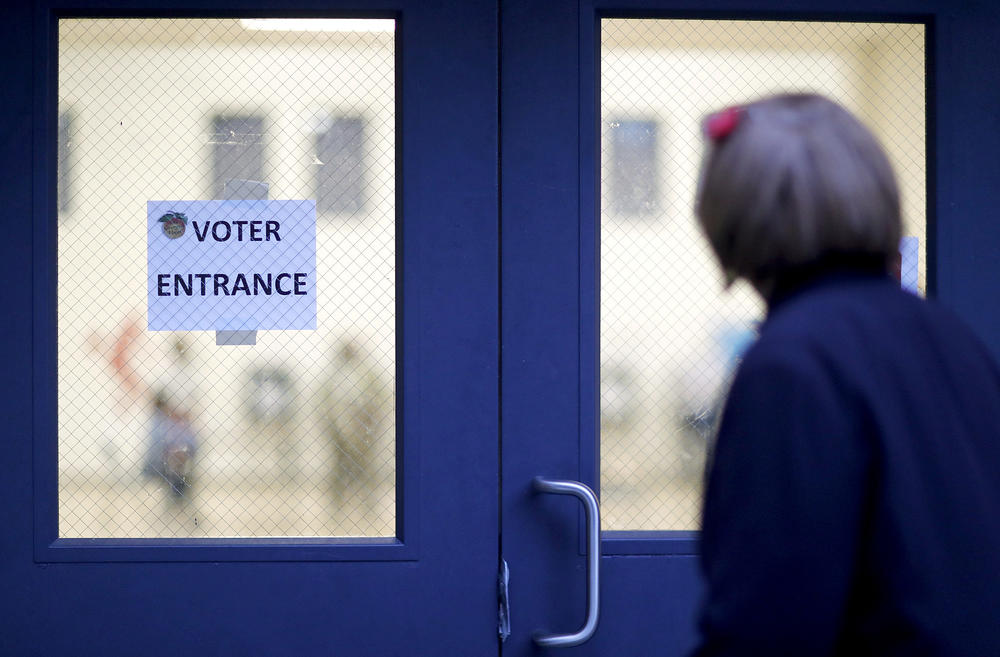Section Branding
Header Content
What's Next In Georgia's Paper Ballots Lawsuit?
Primary Content
Monday night, a federal judge denied a request to move Georgia’s 159 counties to paper ballots ahead of the Nov. 6 midterm election.
But she also denied the state’s request to dismiss the lawsuit, writing that Georgia’s 16-year-old touchscreen voting system is at risk of cyberattack or other threats.
GPB's Stephen Fowler has been following the case. He spoke with GPB's Rickey Bevington about what comes next.
RICKEY BEVINGTON: Stephen, does last night’s ruling change anything for Georgia’s 6.8 million voters ahead of this fall’s midterm elections?
STEPHEN FOWLER: In short, no. Nothing will change with how you vote, whether it is requesting a paper absentee ballot, early voting or on Election Day.
Here’s a brief primer on how the system works:
The state creates a database of ballots used in more than 2,600 precincts on a secure network, then they are hand-delivered on an encrypted CD to each county’s election office.
Each county official must call the secretary of state’s office and get a password to access that CD. Then, that information is put on the memory cards that go onto the touchscreen voting machines.
State elections officials also detailed during the hearing their processes for securing the actual voting machines, as well as how the election night results are delivered.
For people who still don’t trust the voting system, both the state and the plaintiffs recommend requesting paper absentee ballots.
BEVINGTON: Stephen, the court’s decision had some strong language about the current system – Judge Amy Totenberg said state elections officials "buried their heads in the sand" when it comes to dealing with election security. What else did she say about the way things currently are and how they should be addressed?
FOWLER: For the judge to grant this request, the Georgia voters and election security advocates who filed the suit had to prove four things:
One, the plaintiffs did show the state’s touchscreen voting system poses a concrete risk of general ballot counts being inaccurate for elections.
Two, they showed a "real risk of suffering irreparable injury" – that means there’s a legitimate threat that Georgia voters’ individual votes won’t count.
But ultimately the deciding factors were the timeliness and potential harm to public interest. Early voting beings in less than a month, on Oct. 15.
Fulton County said it would severely cut down early voting locations, and the state argued that seven weeks wasn’t enough time to design a system with paper ballots, buy the equipment necessary to count it, train all the people to run it and hope everything runs smoothly.
Totenberg wrote that any chaos or problems that would arise with the sudden rollout of paper ballots would swamp polling locations.
In her ruling, she said, “There is nothing like bureaucratic confusion and long lines to sour a citizen.”
Basically, paper ballots are a new thing, could lead to longer lines and make it harder for people to vote – the opposite of what’s intended.
BEVINGTON: Moving beyond this November’s election, there are two separate tracks: the secretary of state’s Secure, Accessible and Fair Elections Commission deciding on a new voting system and the lawsuit trying to make sure that system is paper ballots. What can we expect in the coming months?
FOWLER: One of the plaintiffs, the nonprofit advocacy group Coalition for Good Governance, said they now plan to force December’s race to move to paper, and there’s still a lot of the lawsuit process ahead.
Especially because Totenberg suggested there were many merits to the evidence shown during the hearing.
The state also appealed, because they want the entire case thrown out. The argument there is that the state is immune to lawsuits in its official capacity, which Totenberg disagreed with.
But the SAFE Commission will continue to meet, and later this week we should be able to see what proposals vendors have made for the new system.
That avenue of fixing things is slated to be completed by the 2020 presidential election.



